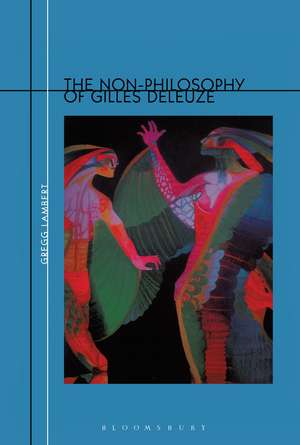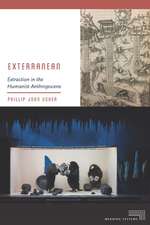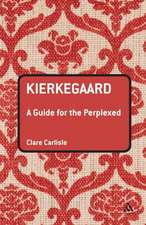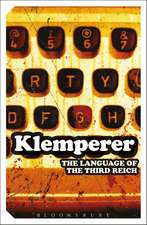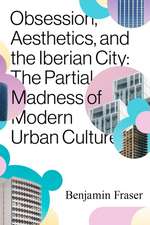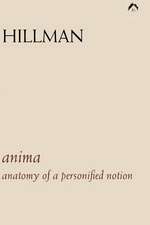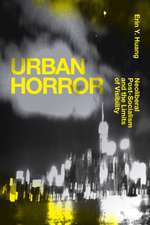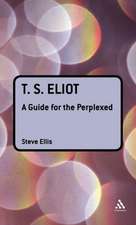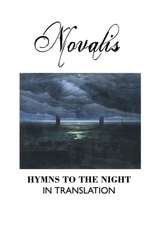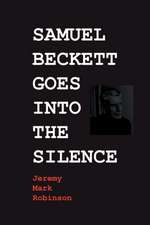The Non-Philosophy of Gilles Deleuze
Autor Gregg Lamberten Limba Engleză Paperback – 31 iul 2002
| Toate formatele și edițiile | Preț | Express |
|---|---|---|
| Paperback (1) | 433.90 lei 6-8 săpt. | |
| Bloomsbury Publishing – 31 iul 2002 | 433.90 lei 6-8 săpt. | |
| Hardback (1) | 1122.79 lei 6-8 săpt. | |
| Bloomsbury Publishing – 31 iul 2002 | 1122.79 lei 6-8 săpt. |
Preț: 433.90 lei
Preț vechi: 536.51 lei
-19% Nou
83.04€ • 90.17$ • 69.75£
Carte tipărită la comandă
Livrare economică 22 aprilie-06 mai
Specificații
ISBN-10: 0826459560
Pagini: 198
Dimensiuni: 164 x 239 x 16 mm
Greutate: 0.31 kg
Editura: Bloomsbury Publishing
Colecția The Athlone Press
Locul publicării:London, United Kingdom
Cuprins
Part I: On the image of though from Leibniz to Borges ("time of its hinges")
1. Philosophy and "non-philosophy"
2. How time places truth in crisis
3. How the problem of judgement
4. The paradox of concepts
Part II: On the (baroque) line
5. "The mind-body problem" and the art of cryptography
6. The riddle of the flesh (the "fuscum subnigrum")
7. On God (the "place vide")
Part III: On the powers of the false
8. The baroque detective: Borges as precursor
9. How the true world became a fable
10. Artaud's problem and ours: belief in the world as it is
11. On the uses (and abuses) of literature for life
Conclusion: On the art of creating concepts
Recenzii
"This is the first book in English to provide a sustained account of the relationship between art and philosophy in Deleuze's work--it is full of thoughtful, at times brilliant reflections on the current state of theory and its relation to the world."--Dorothea Olkowski, University of Colorado
"...It is the most detailed and extensive investigation of the non-philosophy of Deleuze to have been published in English to date...Lambert largely forgoes a didactic approach, opting instead for a more embodied account of the relation between philosophy and 'non-philosophy' that draws on a variety of different media-architecture, painting, literature, film and theater-to illustrate the indebtedness of Deleuze's philosophical oeuvre to such non-philosophical modes of creative and artistic practice...Lambert sets out some of the implications of the aforementioned crises: the problem of judgment in an age that has witnessed the overturning of rationalist principles regarding the ordering of the world...one of the remarkable achievements of The Non-Philosophy of Gilles Deleuze is the way in which, contra many other commentaries on Deleuze, it remains faithful to the pragmatism of Deleuze's work in a way that actually develops and deepens this dimension of the latter's thinking, never losing sight of the initial point of departure: the crisis of the Baroque and what it can teach us about the crisis of our contemporary age...Nevertheless, Non-Philosophy of Gilles Deleuze contributes substantially to the current debates around the political and ethical status of his work (brought so profoundly into relief by Badiou) and, hopefully, it will inspire others to start taking his work along new lines and trajectories without losing sight of the impasses and shortcomings that continue to affect the reception of Deleuze's work in the English speaking world." -Marcel Swiboda, Year's Work in Critical and Cultural Theory, Vol. 12
'...is an immensely valuable contribution to the field in a number of ways...the most detailed and extensive investigation of the non-philosophy of Deleuze to have been piblished in English to date. Secondlay, it does not content itself with merely investigating or commenting upon what the relationship between philosophy and non-philosophy might or might not be, but approaches Deleuze in appropriately monstrous fashion by developing certain of his key concepts and ideas along lines and trajectories that resituate the name of 'Deleuze' in realtion to the philosophical approach that he developed (a move that is bery much in the spirit of Deleuze's own thought).'
Descriere
The Non-Philosophy of Gilles Deleuze takes up Deleuze's most powerful argument on the task of contemporary philosophy in the West. Deleuze argues that it is only through a creative engagement with the forms of non-philosophy--notably modern art, literature and cinema--that philosophy can hope to attain the conceptual resources to restore the broken links of perception, language and emotion. In short, this is the only future for philosophy if it is to repair its fragile relationship to immanence to the world as it is.A sequence of dazzling essays analyze Deleuze's investigations into the modern arts. Particular attention is paid to Deleuze's exploration of Liebniz in relation to modern painting and of Borges to an understanding of the relationship between philosophy, literature and language. By illustrating Deleuze's own approach to the arts, and to modern literature in particular, the book demonstrates the critical significance of Deleuze's call for a future philosophy defined as an "art of inventing concepts."
